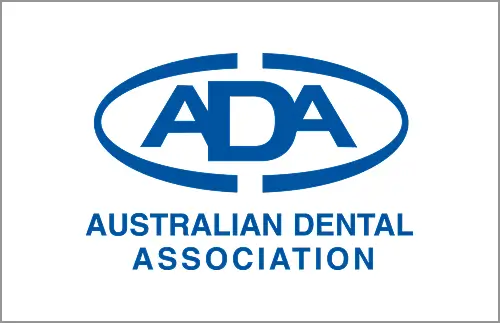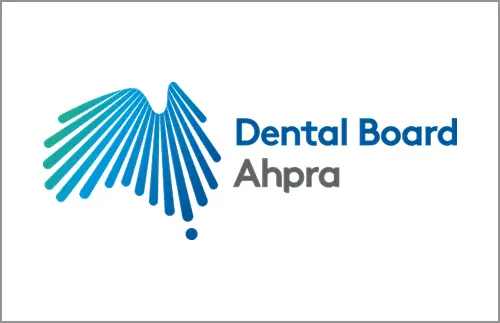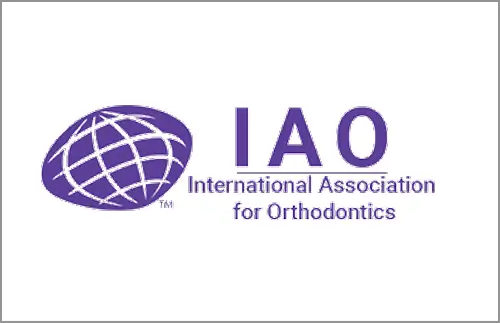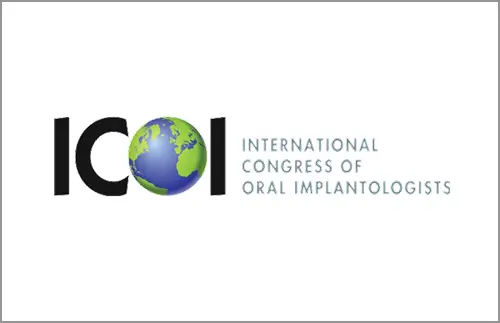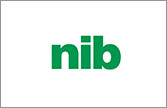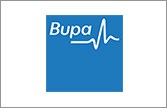

Welcome to Beyond 32 Dental
YOUR TRUSTED DENTAL EXPERT IN PENNANT HILLS
YOUR PARTNER FOR A THOROUGH AND WELCOMING DENTAL JOURNEY
Beyond 32 Dental is your trusted local dentist in Pennant Hills, focusing on gentle care and long-term oral health. Founded in 2013 by husband-and-wife dentists Dr Jeff Lin and Dr Jennifer Chung, our Pennant Hills clinic is a trusted choice for families across the Hills District—including Castle Hill, Glenhaven, and Thornleigh. Book online or call to start your healthiest, most confident smile.
Our services range from routine check-ups to handling dental emergencies with utmost care and precision. Our friendly, experienced crew is committed to providing professional dental care in a comfortable environment, ensuring that your visit is a pleasant one.
We are proud to be your family dentists offering compassionate, comprehensive, and high-quality care for the entire family. Whether you’re dealing with missing or broken teeth, need help with wisdom teeth, or are simply looking to maintain a healthy smile, we’re here to help.
Trust Beyond 32 Dental for a comprehensive approach to your dental health. With our high-quality care and friendly atmosphere, we strive to provide you with the best dental experience. Whether it’s a regular appointment or a dental emergency, we’re here for you.
OUR LEADING DENTAL OFFERINGS
Dental Implants
Dental implants consist of biocompatible titanium rods positioned underneath the jawbone. Once fully fused with the bone, they can serve as a foundation for prosthetic teeth or as an anchor point for unstable dentures.
Damon Braces
The Damon System represents a groundbreaking advancement in modern orthodontics. This low-friction, minimal force system adjusts teeth in a more biologically sensitive manner, and, importantly, it achieves results more rapidly!
Invisalign
Are you dealing with crooked or misaligned teeth? Feeling self-conscious about your smile? Tired of visible solutions? Consider our Invisalign treatment, which utilises clear aligners to straighten teeth.
WHY SELECT US AS YOUR PENNANT HILLS DENTIST?
Award Winning Dental Practice

Unsurpassed patient comfort
We’ve equipped our practice with a dental chair that can rival the cosiest of lounge chairs, enabling you to enjoy TV during your treatment!
Furthermore, we utilise advanced techniques to minimise discomfort, and our practice atmosphere will make you feel entirely at ease.
Don’t hesitate to ask for our comfort menu during your visit and explore additional offerings!
Cutting-edge technology on premises
At Beyond 32 Dental, we pour significant resources into the most advanced equipment and technology, ensuring only the highest standard of care.
Our practice boasts 3D X-rays, a digital scanner to replace old-fashioned moulds, and happy gas, and we also offer sleep dentistry within our premises.


We’ve equipped our practice with a dental chair that can rival the cosiest of lounge chairs, enabling you to enjoy TV during your treatment!
Furthermore, we utilise advanced techniques to minimise discomfort, and our practice atmosphere will make you feel entirely at ease.
Don’t hesitate to ask for our comfort menu during your visit and explore additional offerings!

At Beyond 32 Dental, we pour significant resources into the most advanced equipment and technology, ensuring only the highest standard of care.
Our practice boasts 3D X-rays, a digital scanner to replace old-fashioned moulds, and happy gas, and we also provide sleep dentistry within our premises.
ABOUT US
Beyond 32 Dental
Inaugurated in 2013, Beyond 32 Dental is the brainchild of Dr Jeff Lin and Dr Jennifer Chung, a dedicated husband-wife duo. Guided by the timeless principle, “Do unto others as you would have them do unto you,” we focus on delivering remarkable care, unwavering dedication, and unmatched comfort to our patients.
meet our dental team

Dr Jeff Lin
[Dr Jeff Lin] AHPRA Registration No DEN0001162767, type: General
BDSc (Qld)
Dr Jeff has 16 years of experience in dentistry. He attributes his warm character and positive, influential charm to growing up in Dunedin, New Zealand. It was here that he obtained his Bachelor’s degree in Biochemistry from the University of Otago.

Dr Jennifer Chung
BDSc (Qld)
Dr Jen brings 16 years of experience to her role as a dentist. Originally from Malaysia, she came to Australia to study dentistry and graduated from the University of Queensland in 2009. It was here that Dr Jen developed a true passion for her chosen professional and, by coincidence, her practice partner and future husband, Dr Jeff Lin.

Dr. Jeff Lin
[Dr Jeff Lin] AHPRA Registration No DEN0001162767, type: General
BDSc (Qld)
Dr Jeff has 16 years of experience in dentistry. He attributes his warm character and positive, influential charm to growing up in Dunedin, New Zealand. It was here that he obtained his Bachelor’s degree in Biochemistry from the University of Otago.

Dr. Jennifer Chung
[Dr Jennifer Suk Chung] AHPRA Registration No DEN0001208770, type: General
BDSc (Qld)
Dr Jen brings 16 years of experience to her role as a dentist. Originally from Malaysia, she came to Australia to study dentistry and graduated from the University of Queensland in 2009. It was here that Dr Jen developed a true passion for her chosen professional and, by coincidence, her practice partner and future husband, Dr Jeff Lin.

Dr Ashleigh Wong
[Dr Ashleigh Kuan Yee Wong] AHPRA Registration No DEN0001994878, type: General
Dr Ashleigh has been caring for patients for 10 years. She completed her undergraduate studies at the University of Queensland and holds a Bachelor of Dental Science with Class I Honours. Being born and raised in the Hills, she is thrilled to be back in the Hills District to look after our local community.

Dr Leazelle Graham
Dr Leazelle, who has 6 years of dental experience, grew up in the Central West of NSW and moved to Sydney for University, where she completed a Bachelor of Science majoring in Pharmacology at the University of New South Wales, followed by a Doctor of Dental Medicine postgraduate degree at the University of Sydney.

Dr. Ashleigh Wong
[Dr Ashleigh Kuan Yee Wong] AHPRA Registration No DEN0001994878, type: General
Dr Ashleigh has been caring for patients for 10 years. She completed her undergraduate studies at the University of Queensland, and holds a Bachelor of Dental Science with Class I Honours. Being born and raised in the Hills, she is thrilled to be back in the Hills District to look after our local community.

Dr Leazelle Graham
[Dr Leazelle Anne Graham] AHPRA Registration No DEN0002328642, type: General
Dr Leazelle, who has 6 years of dental experience, grew up in the Central West of NSW and moved to Sydney for University, where she completed a Bachelor of Science majoring in Pharmacology at the University of New South Wales, followed by a Doctor of Dental Medicine postgraduate degree at the University of Sydney.
Frequently Asked Questions
Are you accepting new patients at your Pennant Hills dental clinic?
Yes! We warmly welcome new patients looking for a trusted, local Pennant Hills dentist. Our team is committed to making your first visit comfortable and stress-free by providing exceptional dental services for the whole family.
Do you provide emergency dental services in Pennant Hills?
Yes, if you are experiencing a dental emergency such as a knocked-out tooth, severe pain, bleeding, or swelling, you can count on us for fast and compassionate care. As a trusted emergency dentist in Pennant Hills, we prioritise urgent cases and offer same-day appointments when possible. Don’t wait for dental pain, call us now at (02) 9158 6334 to get instant relief.
How can I book an appointment with your Pennant Hills dentist?
Booking your appointment is quick and easy. You can call our friendly team at (02) 9158 6334 or use our secure online booking system 24/7. We offer flexible scheduling to suit busy lives and are happy to accommodate new patients, dental emergencies, and families. Our clinic is centrally located in Pennant Hills with convenient parking and public transport access, making it simple to prioritise your dental health.
Which individuals are suitable candidates for dental implants?
General Health Considerations
Good general health is a crucial factor for those considering teeth implants. Chronic conditions such as uncontrolled diabetes or heart disease may impede the healing process post-surgery. It’s essential for individuals considering this treatment to discuss their medical history comprehensively with their dental practice.
Oral Health Requirements
Ideal candidates for teeth implants should have good oral health. Conditions like untreated tooth decay, active gum disease, or inadequate bone density in the jaw can complicate the implant procedure. An experienced dental team will conduct thorough examinations during initial dental visits to assess oral health and determine suitability for the procedure.
Commitment to Dental Hygiene and Regular Dental Visits
Maintaining oral hygiene and scheduling regular dental checkups are crucial for the long-term success of teeth implants. Consistent brushing, daily flossing, and professional cleanings promote the health and durability of your implants.
Those willing to invest time and effort into maintaining their oral health often find dental implants a beneficial solution to their dental needs.
Lifestyle Factors
Smoking is a significant factor that can adversely impact the success of implants, as it hampers the healing process and can contribute to implant failure. Ideally, candidates considering dental implants should be willing to quit smoking.
Learn more about dental implants in Pennant Hills
How can one eliminate bad breath effectively?
Bad breath (halitosis) can affect anyone at any time. It can cause embarrassment, affect confidence, and even impact social interactions. Luckily, there are several methods to manage and prevent bad breath.
Understand the Causes of Bad Breath
Identifying the root causes of bad breath is crucial in its management. Typically, it results from bacteria buildup on the tongue’s back, between teeth, or along the gum line. These bacteria break down food particles, emitting unpleasant odours. Additionally, bad breath may indicate underlying oral health problems like gum disease, tooth decay, or infections. Lifestyle choices, such as smoking or specific food and drink consumption, can also contribute to bad breath.
Comprehensive Dental Care
Preventing bad breath begins with comprehensive and professional dental care. Maintain excellent oral hygiene by brushing your teeth twice daily, flossing to remove plaque and debris, and using an antiseptic mouthwash. Don’t forget to brush your tongue or use a tongue scraper to eliminate bacteria on its surface.
Regularly replacing your toothbrush every three to four months is also necessary, as worn-out bristles can harbour bacteria leading to bad breath.
General Dental Treatments
If you still find bad breath a problem despite maintaining good oral hygiene, dental treatment may be necessary. Regular dental cleanings by a professional dentist effectively eliminate accumulated plaque and tartar. For individuals with gum disease, a deep cleaning procedure called scaling and root planing is carried out to remove bacteria and smooth tooth roots, aiding gum reattachment. In certain instances, bad breath may result from an infected tooth, necessitating a root canal to remove the infected pulp and preserve the tooth.
Oral Health and Regular Dental Check-ups
The importance of consistent dental check-ups cannot be overstated in the quest to eliminate bad breath. Regular dental visits allow for the early detection of potential issues such as tooth decay or gum disease that might contribute to bad breath. Your dentist can provide suitable advice and dental treatments based on your individual oral health needs.
Dietary Considerations
Certain foods like onions, garlic, and some spices can cause bad breath. While it may not be necessary to completely eliminate these foods from your diet, it’s worth being mindful of your intake, especially before social engagements.
Staying hydrated is also important. A well-hydrated mouth prevents bacterial growth that leads to bad breath. Drinking ample water keeps your mouth moist and flushes away food particles and bacteria.
Is Invisalign treatment available at your Pennant Hills dental clinic?
Yes, we offer Invisalign in Pennant Hills as a discreet and convenient solution for straightening teeth. Invisalign uses custom-made, clear aligners that gradually move your teeth into position, without the need for traditional metal braces. It’s ideal for teens and adults looking to improve their smiles with minimal lifestyle interruption. Our dentist in Pennant Hills will assess your eligibility and guide you through a personalised Invisalign treatment plan.
What are the reasons for gum bleeding?
Bleeding gums can be a concerning symptom that should not be overlooked. Often, it’s a sign of an underlying oral health issue that requires immediate attention.
Poor Oral Hygiene Practises
The most common cause of gum bleeding is inadequate oral hygiene, leading to plaque buildup along the gum line. Plaque is a sticky, clear substance that consists of bacteria, which can cause irritation and inflammation of the gum tissue, resulting in bleeding. If left untreated, this can lead to a more serious gum disease known as periodontitis.
Gingivitis: The Early Stage of Gum Disease
When plaque isn’t removed effectively, it can cause gum inflammation, known as gingivitis. The primary symptom of gingivitis is bleeding gums, especially when brushing or flossing. Gingivitis is reversible with good oral hygiene practices and professional dental cleanings.
Periodontitis: A Serious Gum Disease
Unaddressed gingivitis can advance to periodontitis, a more severe gum disease. Periodontitis causes the gum and bone to recede, forming pockets around the teeth.
These small spaces collect debris and can become infected, leading to gum bleeding, pain, and eventual tooth loss if not managed promptly.
Medications Contributing to Gum Bleeding
Certain medications, particularly blood thinners, can cause gum bleeding. These medications decrease the blood’s ability to clot, resulting in easier bleeding. If you’re experiencing gum bleeding and are on blood thinners, it’s crucial to notify your dentist.
Hormonal Changes in Women
Hormonal changes during puberty, pregnancy, menstrual cycle, or menopause can make gums more sensitive, causing them to bleed. Regular dental check-ups during these times can help manage gum health effectively.
Improper Brushing and Flossing Techniques
While regular brushing and flossing are crucial for maintaining oral health, using the wrong technique can also lead to gum bleeding. Hard brushing can cause the gums to recede, leading to bleeding and sensitivity. It’s recommended to use a delicate toothbrush and gentle, circular motions while brushing.
Nutritional Deficiencies
Proper nutrition plays a significant role in gum health, and deficiencies in essential vitamins like C and K can lead to gum bleeding. Vitamin C is crucial to prevent conditions like scurvy, which causes gum bleeding and swelling. Meanwhile, adequate vitamin K intake supports blood clotting, reducing the risk of easy bleeding. Maintaining a balanced diet can promote healthy gums and overall oral well-being.
Is teeth whitening safe?
Teeth whitening is generally considered safe for your teeth when performed correctly. Most whitening agents use an effective form of peroxide that bleaches the teeth to remove stains and discolouration. Whether done by a dental professional or using over-the-counter products, proper usage is vital.
However, before undergoing teeth whitening, it’s crucial to consult with a dentist. They will assess your oral health to ensure teeth whitening is a suitable and effective option for you. Prioritising the health of your teeth will help you achieve the brighter smile you desire effectively.
Whether you’re looking for professional teeth whitening dental care or live nearby in Castle Hill, Glenhaven, Thornleigh or across the Hills District, we’re here to help you achieve a healthy, beautiful smile.
Can I visit a dental professional during pregnancy without any concerns?
Absolutely! Visiting a dental professional during pregnancy is not only safe but highly recommended. Pregnancy-related hormonal changes can lead to dental issues like gingivitis, pregnancy tumours, and tooth erosion, emphasising the importance of professional dental care.
Fortunately, routine dental work, including dental cleaning, can be safely done at any stage of pregnancy. Regular dental checkups and care can help maintain optimal oral health for both the mother and the baby.
For dental emergencies, treatment should not be delayed. Untreated dental issues can pose risks to the mother and foetus.
It is safe to visit a dental professional during pregnancy. However, it’s essential to inform your dentist about your pregnancy, any medications you’re taking, and advice from your obstetrician. This ensures your dental professional can provide the safest care possible.
Maintaining good oral hygiene at home is also crucial. Consistent brushing and flossing help prevent or minimise dental problems during pregnancy, contributing to overall oral health for both the mother and the baby.
What are the different types of teeth implants available?
Endosteal Implants
Endosteal implants are typically shaped like small screws, cylinders, or plates and are made from a biocompatible material such as titanium. The dental implant treatment involves the placement of endosteal implants directly into the jawbone. After the gum tissue has healed, a second surgery connects a post to the implant. The final step includes attaching artificial teeth individually or in groups on a denture or bridge to complete the process.
Subperiosteal Implants
Subperiosteal implants are different kinds of tooth implants that are placed under the gum but above or on the jawbone. They are used when patients lack sufficient healthy natural jawbones and prefer not to undergo bone augmentation. These implants are equipped with a metal frame that is positioned below the gum tissue, resting on the jawbone. As the gums heal, the frame becomes securely attached to the jawbone. Posts are attached to the frame, protruding through the gums to support the artificial teeth.
Zygomatic Implants
Zygomatic implants are the least common type. This option is chosen when the patient’s upper jaw lacks sufficient bone for traditional implants and bone grafting is not feasible. The implant is placed in the cheekbone (zygoma) rather than the upper jaw.
Immediate Load Dental Implants
Same-day dental implants offer the convenience of receiving a temporary tooth on the same day as your implant placement. This option is suitable when there is enough natural bone and a secure implant to support immediate placement and pressure on the temporary tooth.
Mini Dental Implants
Commonly referred to as narrow or small diameter implants, these dental implants are designed to be toothpick-sized, narrower than the more commonly used types. They are placed through less-invasive techniques and are primarily used to stabilise a lower denture.





